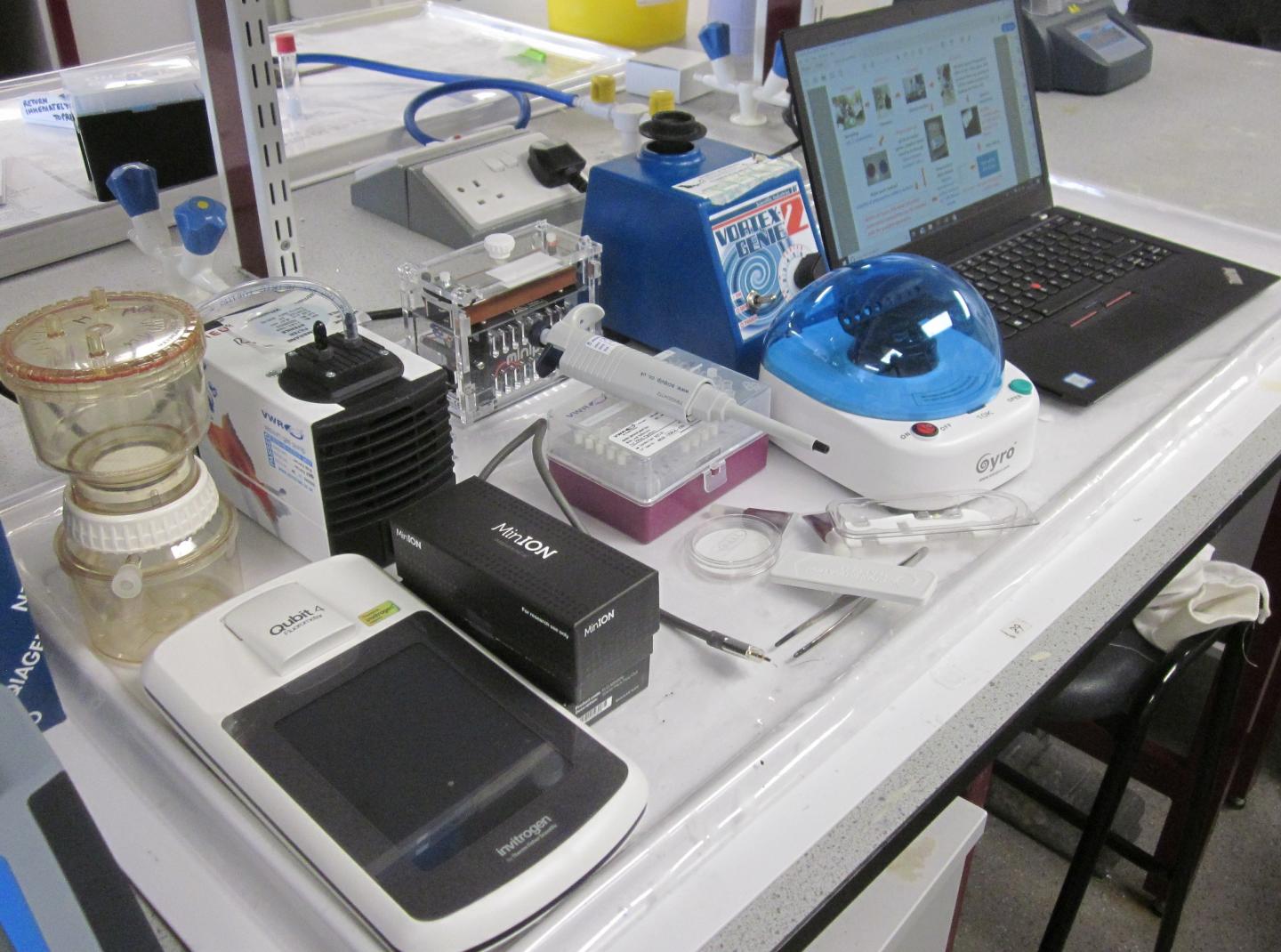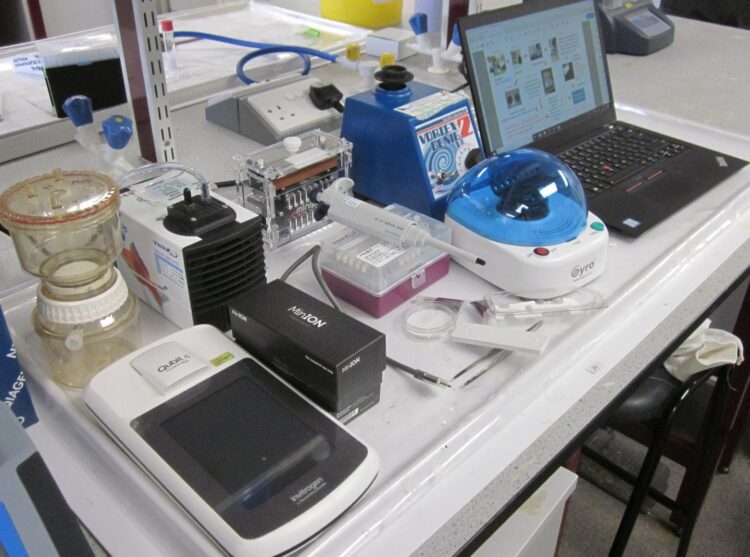A portable testing lab that fits into a suitcase is being hailed as the key to tackling one of the world’s biggest dangers to health.

Credit: Newcastle University, UK
A portable testing lab that fits into a suitcase is being hailed as the key to tackling one of the world’s biggest dangers to health.
Experts from Newcastle University UK, have been working with the Addis Ababa Water and Sewerage Authority (AAWSA), Addis Ababa University (AAU) and the International Water Management Institute (IWMI) to ensure waterborne hazards can be identified in a quicker, easier and ultimately cheaper way, anywhere in the world.
Using smaller and less expensive versions of the same type of specialist equipment found in state-of-the-art microbiology laboratories in the UK, the new suitcase lab – believed to be a world first – enables screening of millions of bacteria in a single water sample, instead of running many tests in parallel to look for different pathogens.
Genetic analysis can bring to light numerous hazards potentially present in water, but such analysis is currently carried out in a laboratory, using large and expensive machines. These facilities are often not available in developing countries, and the process of sending samples from the affected country to the UK for detailed analysis can take more than a month.
The portable lab means scientists can go direct to the location where a waterborne disease is thought to be present and screen a water sample for genetic material – with results available within a day or two.
The data can be used for measuring the effectiveness of wastewater treatment, faecal pollution source tracking and the identification of waterborne hazards in surface and groundwater. The rapid data generation gives public health officials more opportunity to quickly identify and deal with local hazards, potentially saving countless lives.
After initial on-site testing on samples collected at Birtley sewage treatment plant in North East England, the suitcase lab was used to carry out water quality screening in the Akaki River catchment near Addis Ababa, Ethiopia. These achievements have just been published in the journal Water Research.
Dr David Werner, Professor in Environmental Systems Modelling, Newcastle University, explains: “By taking advantage of innovative technologies to make it easier and faster to carry out on-site water quality assessments, and with our Ethiopian colleagues, we have demonstrated a way to study genetic material with affordable resources almost anywhere in the world.
“With our portable laboratory we successfully screened millions of bacteria in Akaki River water samples and discovered a high prevalence of Arcobacter butzleri, a still poorly understood waterborne hazard that can cause watery diarrhoea. Unfortunately, diarrhoea is still a leading cause of death among children under the age of five.”
Government advice to “wash your hands frequently” exemplifies the importance of safe water and sanitation for hygiene and public health. But according to the United Nations, six in 10 people lack access to safely managed sanitation facilities and three in 10 people in the world lack access to safely managed drinking water services.
As well as reducing the time required to measure water quality, the project aims to enable the independent use of the tools by researchers and water systems engineers in Ethiopia. Dr Alemseged Tamiru Haile from the IWMI is confident that the scientific break-through will make a difference in Ethiopia.
“Our collaboration with Newcastle University in terms of carrying out the field work and analysis provided an opportunity for the hands-on training of 13 junior experts in Ethiopia at AAWSA facilities,” he says. “One AAWSA staff member then visited Newcastle to receive intensive training in water quality monitoring with the portable laboratory. Academics from AAU can now integrate the novel approach into their curriculum. The equipment items we have assembled in the portable laboratory are affordable for AAU and AAWSA.”
AAWSA is constructing more sewage treatment plants in Addis Ababa, and the team will continue their monitoring in the Akaki catchment to provide evidence for the benefits of these investments in public health.
Dr Kishor Acharya is the early career scientist at Newcastle University who has led the development of the portable molecular toolbox. He has delivered training workshops in portable metagenomics to junior academics and laboratory technicians from research institutions, NGOs, and government agencies in Tanzania, Thailand, Malaysia, Nepal, India and Ethiopia.
Dr Acharya, who is originally from Nepal, says that the portable lab kit could easily be used in many different contexts to screen for dangerous pathogens. “I want to demonstrate the applicability of the mobile toolkit and the protocols we’ve developed for microbial hazard surveying to other disciplines,” he explains. “In the future, this kit could potentially be used as a way to assure food and drink safety, efficient health services, productive agriculture and beyond.”
###
The project has been delivered through the £17 million Global Challenges Research Fund Water Security and Sustainable Development Hub.
Media Contact
Dawn Tudge
[email protected]
Related Journal Article
http://dx.





